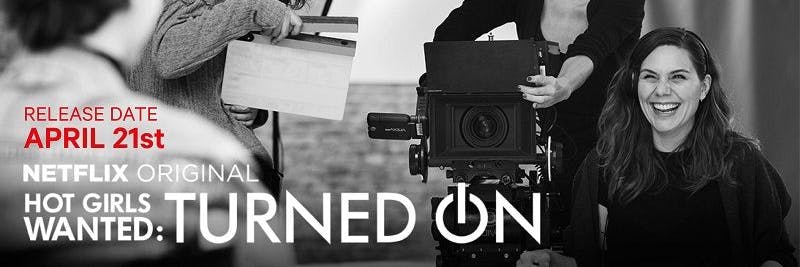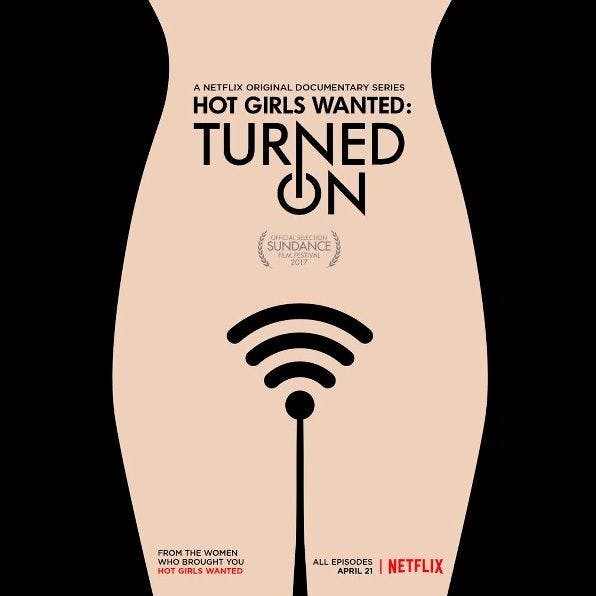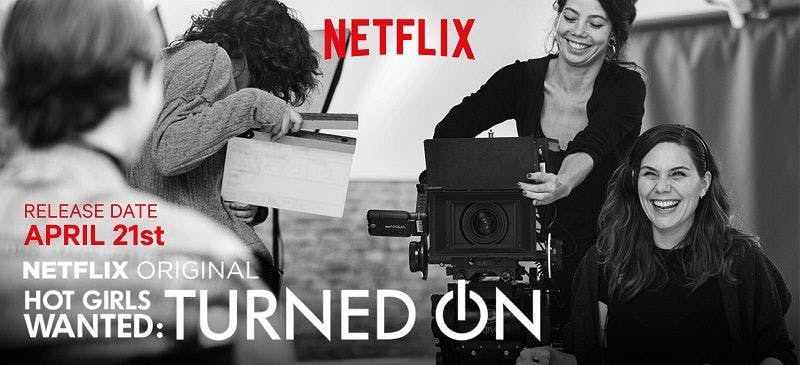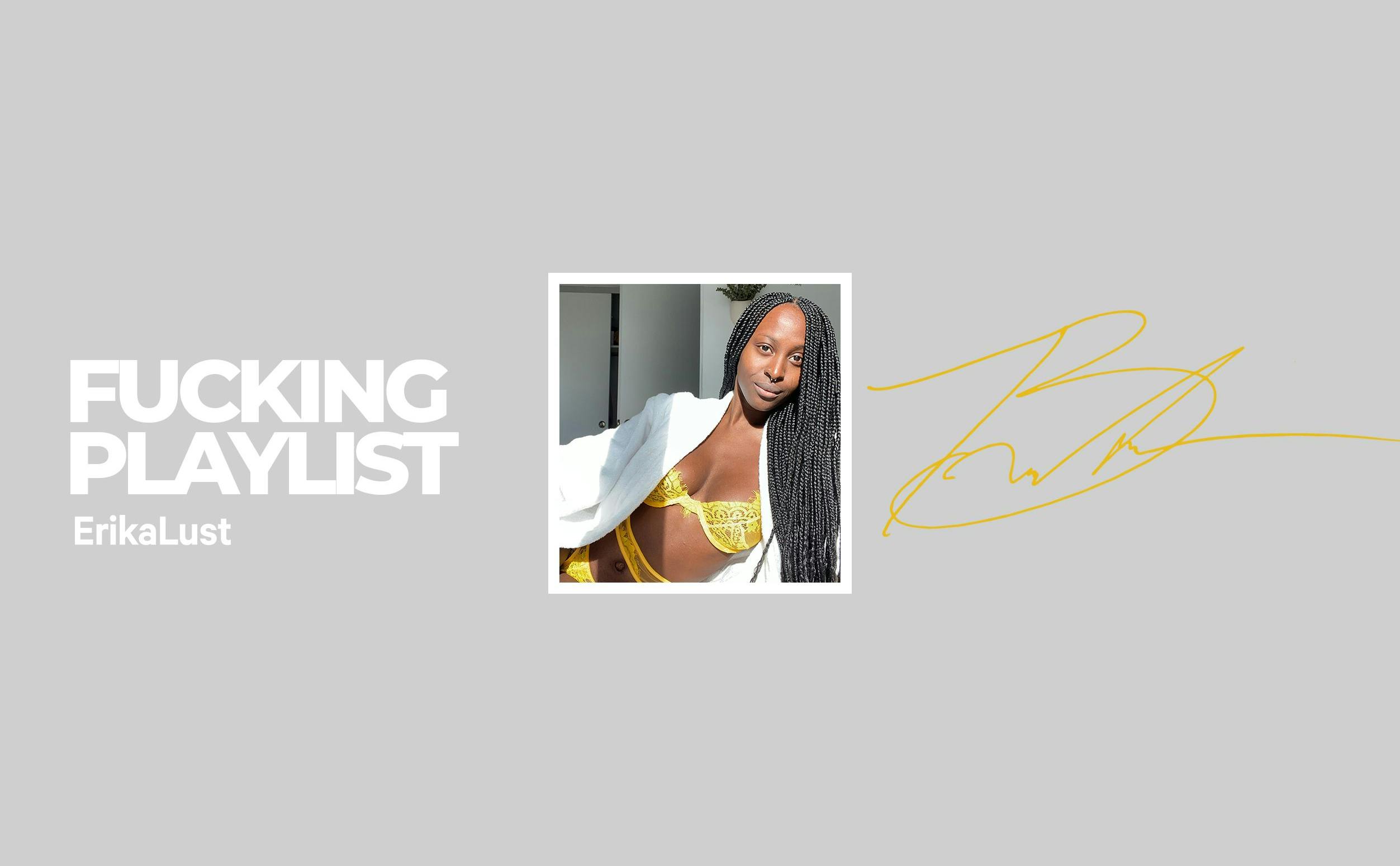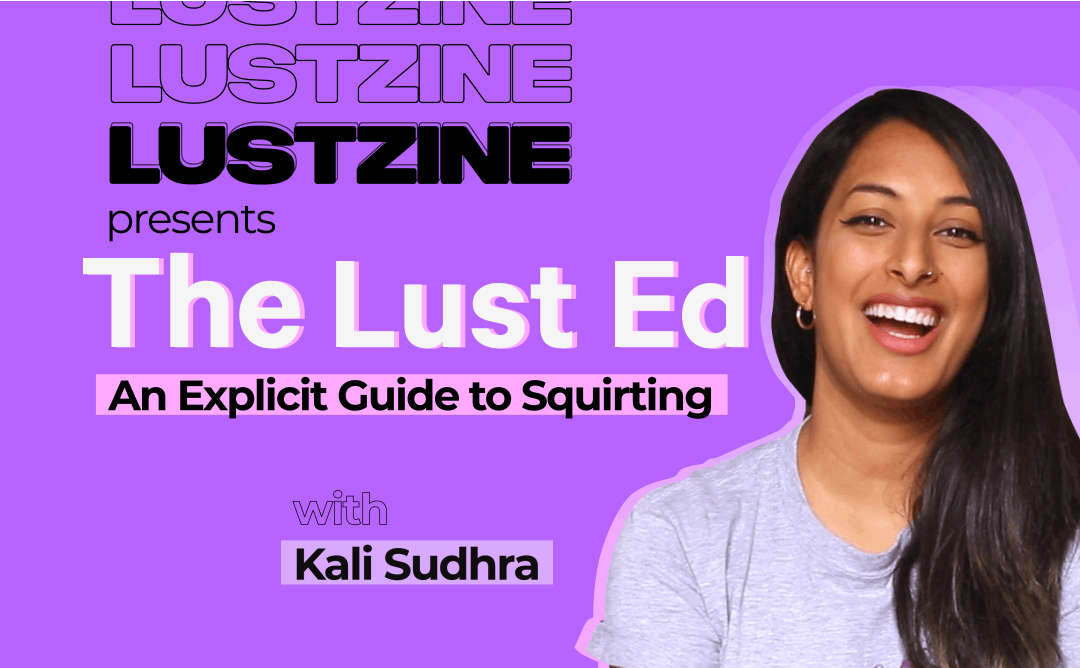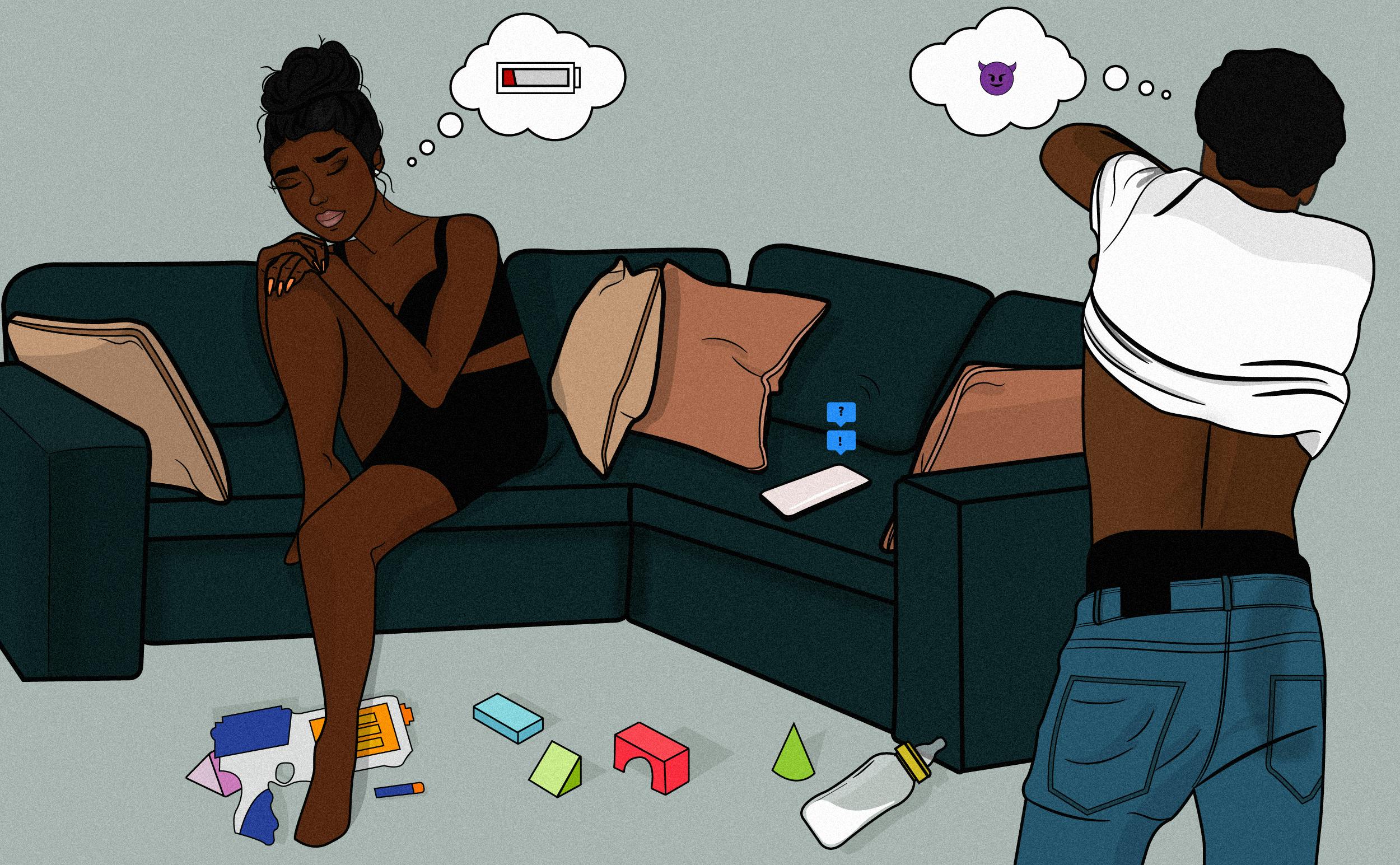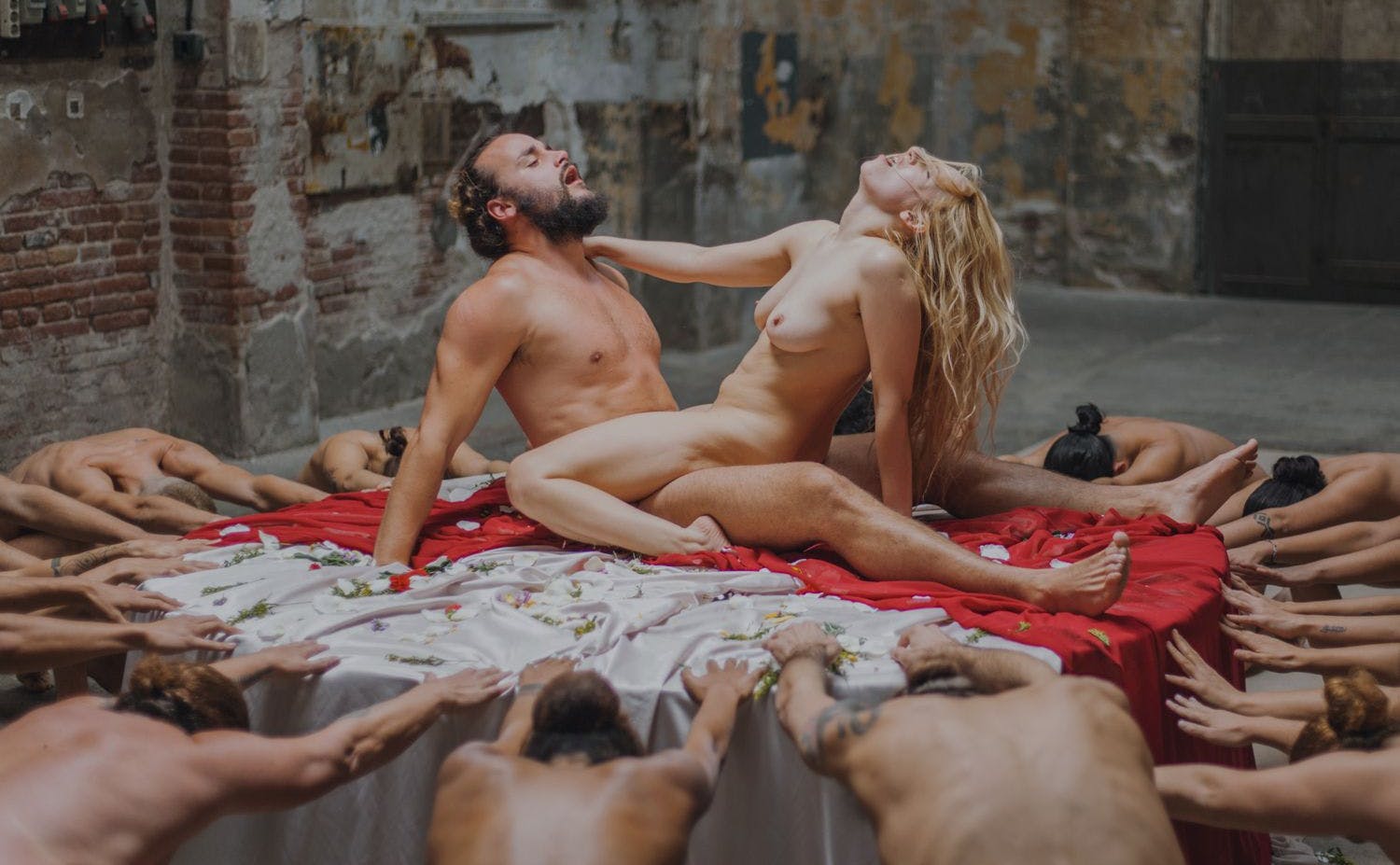I’m on Netflix! Watch Hot Girls Wanted: Turned On
I’m on Netflix! Watch Hot Girls Wanted: Turned On
Hot Girls Wanted: Turned On is the follow-up docuseries to Rashida Jones‘ prolific documentary [Hot Girls Wanted](Hot Girls Wanted: Turned On). This six part Netflix series, by producers Rashida Jones, Jill Bauer, and Ronna Gradus, portrays six real stories about real people and their experiences of the intersection of romance and technology. Watch the trailer here:
The original documentary focused on the abusive way young girls are lured into amateur porn (of course, mainly by older men). Hot Girls Wanted: Turned On has moved on to the broader subject of how the explosion of the Internet has effected relationships. Technology is so much a part of our lives these days that it affects us in the way we meet people romantically, the way we learn about sex and the way we value ourselves both sexually and in regards to close relationships. The series doesn’t just focus on the porn industry. Each episode of Turned On touches on something new including dating apps, amateur porn, camming and video chatting; telling stories of intimacy, connection, disconnection, self-promotion, race and gender politics. Using new statistics from Indiana University (affiliates of The Kinsey Institute), one episode a takes a deeper look into the how the Internet has rewired our perceptions of dating completely and Tinder’s paradox of having too much choice.
The first episode “Women on Top” uncovers female empowerment, speaking specifically with women working to offer porn for women or an alternative to mainstream porn and the normative attitudes towards female sexuality. The episode follows yours truly and Holly Randall, daughter of Suze Randall – one of the first women to explore the female gaze in mainstream culture through her advantageous job as cover photographer for Playboy! Holly has followed in her mother’s footsteps with her own erotic production company featuring movies and cam models, creating safe spaces for women in the industry.
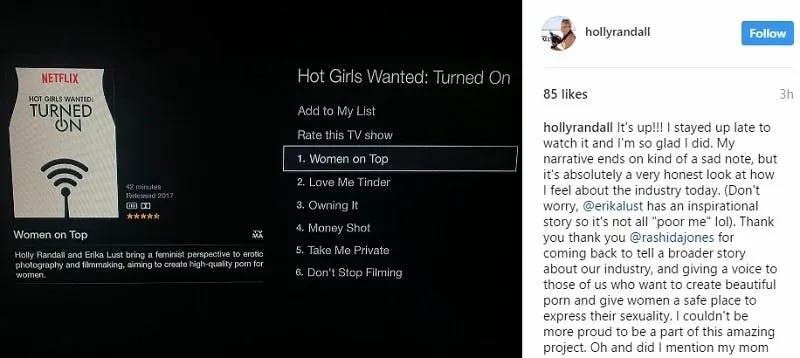
How Girls Wanted: Turned On on Netflix
The Netflix team came behind the scenes with me on some of my shoots and hung out in our offices to discuss my views on the more positive variations of porn that exist, the less positive and the resultant behavior when there’s a lack of communication, and abundant internet access at young ages. For me the series highlights how much technology has exposed us to pornography and how with the widening of free porn available online, we need women fighting from the inside to make a change. We can no longer hide in the dark ages and give our kids advice about the “birds and the bees”. We can’t ignore that porn today is sex education. Not only that, but kids will grow up in a world where online dating is normal, faster and more convenient but not necessarily healthier. Having these conversations and the porn conversation now is needed. I hope the series will get people thinking about the positive changes that can come from understanding the monumental effect tech has on our lives and how putting women in the industry can offer some of the alternatives we’ve been waiting for.
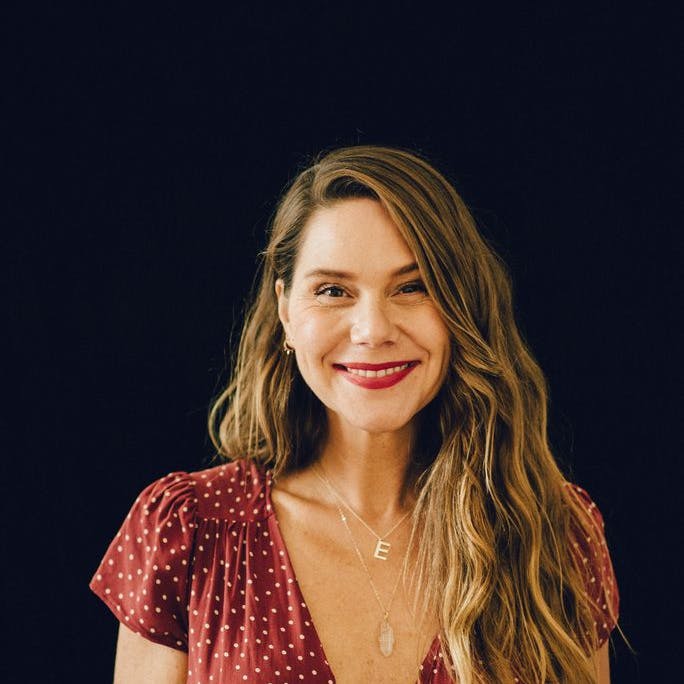
GET A FREE MOVIE
